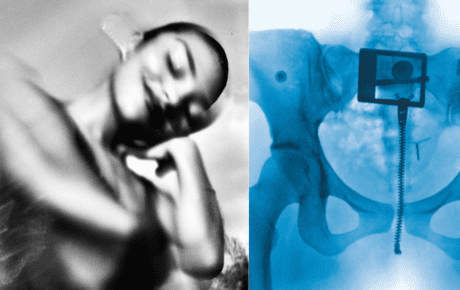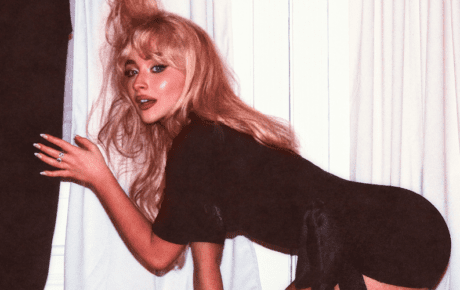*Spoilers Ahead*
As a self-professed diehard Wicked fan, I was absolutely locked in for Wicked: For Good the second the date announcement hit my social media feed. Watching it three days after the initial New Zealand release, I already felt behind the times and was consequently itching to be immersed in the land of Oz with all its beautiful, fascinating characters. And what a ride it was. If Wicked, Part 1, was incredible, Part 2 was simply in a league of its own.
Though I’m sure anyone reading this has seen part 1, a quick recap: Wicked explores the origin stories of Glinda the Good and Elphaba, the Wicked Witch of the West from The Wizard of Oz, tracing their journeys through school and their subsequent exposure to reality. In a time when political opinions are divided, it’s a perfect moment for such a complex film to come out, as it explores injustice, inequality, bullying, and propaganda, among other themes. Wicked: For Good picks up half a decade after the first film’s epic conclusion, with Glinda serving as an encouraging figurehead to the citizens of Oz and Elphaba frantically on the run after she tries to save the animals and is branded evil.
The soundtrack’s first song is ‘Every Day More Wicked’, an extended version of ‘Thank Goodness’, which is typically the musical’s opening song for the second half. Verses are added that directly reference Elphaba’s perceived wickedness, juxtaposed with Glinda’s goodness. With its emphasis on contrast, powerful orchestration and a band of ensemble singers, the song raises the stakes in a fashion similar to ‘No One Mourns the Wicked.’
With a quick solo by Madame Morrible (played by Michelle Yeoh), the focus quickly returns to our central characters when it’s announced to the citizens of Oz that Glinda and Fiyero are to be married (not that Fiyero knew this). Grande’s impressive vocal range takes centre stage on ‘Thank Goodness / I Couldn’t Be Happier.’ Glinda transitions from hopeful and ignorant to adopting a more falsetto tone as she realises that the happiness she speaks of is primarily inauthentic, behind a façade she has unwittingly helped create. Her awareness of this seeps through in lyrics like ‘I couldn’t be happier though I admit it’s the tiniest bit unlike I anticipated’ and ‘there are bridges you crossed you didn’t know you crossed.’
Next is Elphaba’s first solo and the first new song, ‘No Place Like Home.’ Elphaba’s longing to return home and Erivo’s conflicted emotions come through in this downtempo track. Audiences can truly feel how much Elphaba loves Oz, and how ferocious she is about fighting for it to be a place of integrity even though it costs her her freedom and reputation in the eyes of almost all Ozians. It speaks to the heart of Elphaba’s morals, and how those continue to be her compass although she has often been treated cruelly by other Ozians as a result of her differences.
Alas! A collaborative song! ‘The Wicked Witch of the East’ reintroduces audiences to one of the musical’s central characters, Nessarose Thropp (now Governor Nessa), played by Marissa Bode. It’s also in this moment that we get to see the first transformation of an original Wizard of Oz character. Nessarose has discovered that her Munchkin partner, Boq, plans to go to the Emerald City to tell Glinda he has always loved her, and when Elphaba visits Nessarose, she attempts to use the Grimmerie for a love spell. However, it goes horribly wrong, and to alleviate Boq’s pain as his heart constricts, Elphaba transforms him into the tin man. Bode is brilliant vocally, with her bitterness and despair clear as the song escalates.
‘Wonderful’ is perhaps the first remotely upbeat song on the album. Glinda and the Wizard (played by Jeff Goldblum, who fronts the song) try to convince Elphaba together in the form of this jazzy duet to work with the Wizard, though she remains steadfastly unconvinced. The Wizard even goes as far as to boast about his mass deception, singing, ‘the truth is not a thing of fact or fiction, it’s just what everyone agrees on.’ He references the ambiguity of historical figures and how nobody is all good or all evil, but it still doesn’t sway her. Not long after this, Elphaba officially declares war on the Wizard after discovering his dungeon of caged animals, including the much-loved history teacher Dr Dillamond.
‘I’m Not That Girl (Reprise)’ acts as the film’s only reprise, and it’s given to Glinda this time around. In Wicked, it’s sung by Elphaba when she realises Fiyero and Glinda are together, and the jealousy she harbours knowing everyone admires Glinda. However, Glinda’s rendition features her coming to terms with the fact that she’s not who everyone thinks she is, and the admiration is based on deception. It’s a great callback to the film’s opening number – Glinda has indeed got everything she wants but hasn’t necessarily earned it.
‘As Long as You’re Mine’ kickstarts the climax of when the music of For Good really turns things up to another level of intensity. As Fiyero and Glinda sing about their desire for each other, layers of strings and synths add to the romance and rebellion. Fiyero HAS, in fact, just run away from his wedding, though, so audiences are left wondering what consequences this passionate moment will have moving into the final act.
‘No Good Deed’ is undoubtedly Erivo’s most impressive vocal moment, especially with the belting of ‘FIYERO!’ The song is a turning point for Elphaba as she examines her own motivations and why people ‘do good’, asking herself whether she meant to ‘seek good or just seek attention?’ From her perspective, she’s tried to help society and those she loves (like Nessa and Dr Dillamond) with her powers, but it’s been consistently twisted into disasters and propaganda. With this realisation, she learns into the characterisation Oz has given her. Against a background of frantic strings and guitar riffs, she declares her time being charitable is over, and all of Oz should agree that she is ‘wicked through and through.’ Fiyero’s fate is also revealed in ‘No Good Deed’s’ lyrics, in ‘let his flesh not be torn, let his blood leave no stain, let his bones never break.’ Though he has been arrested and tortured, he is turned into a scarecrow to avoid feeling pain.
It must be said, Ethan Slater shines in ‘March of the Witch Hunters.’ He emanates a terrifying aura as he sings about the ‘personal score’ he has ‘to settle’ with Elphaba, glancing up at Glinda with robust hate in his eyes as he sings ‘for once I’m glad I’m heartless, I’ll be heartless killing her!’ As the citizens of Oz rally to demand Elphaba’s death, the chanting (which is almost an anthem) is layered over resilient harmonies, mixing undeniable passion and unchecked rage.
Ariana Grande’s solo moment arrives in the new song, ‘The Girl in the Bubble.’ Even the title is double-meaning – Glinda floats in a pink bubble to visit Ozians (gifted by Madame Morrible) while also remaining confined in her privileged life, unable to question. Grande’s vocals are so emotionally charged that it’s hard not to feel sorry for her naivety as she comes to terms with her desire to experience reality outside of her ‘bubble’ and take a stand. Glinda has previously cut off her own morality and sense of decency to get what she thinks she wants (lyrics from ‘Thank Goodness’ also in part reflect this), but the time has come for that to change. While it’s not an essential addition in my opinion (‘Thank Goodness does reflect a similar theme more succinctly), it is a critical turning point for Glinda herself.
Finally, ‘For Good.’ The moment many of us were waiting for. The Elphaba-Glinda duet that tugged at the heartstrings so hard I wondered if it was worth keeping my heart in my chest for a moment. Alongside ‘Defying Gravity,’ it’s the duo’s most iconic moment. Sharing tender confessions with one another, Elphaba acknowledges that her narrative has been changed by their friendship, and Glinda declares that she has been changed for the better. (We get a slight indication of how true this is not long after, when the Grimmerie finally opens for Glinda, indicating that, because of this change, she is finally, truly, magical). Both Erivo and Grande are extremely well-suited to this warm-hearted, gentle song. It’s the perfect ending to a pair of films that are, indeed, wonderful.












